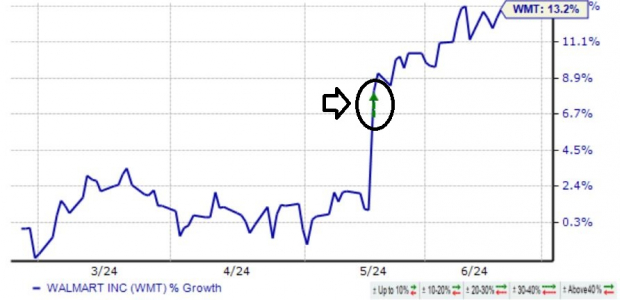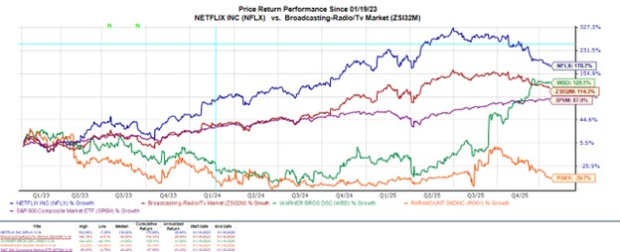Higher inflation and more cautious consumers spell trouble for these three retail stocks
Since the onset of the Covid-19 pandemic, the retail industry has gone through tremendous volatility. Initially, there was a boom effect for many retailers. People were stuck at home with money to spend. Unprecedented government stimulus paved the way for record consumer spending. And with entertainment venues and travel shut down, people spent more than ever on material goods. But things are changing and investors need to pay attention to which retail stocks to sell.
Retail sales have started to slump across many categories. With high inflation, a weakening economy and potential stagflation setting in, retail companies are starting to hunker down for potential hard times ahead. For these three retail stocks to sell today, there are numerous dark clouds on the horizon.
Big Lots (BIG)

Source: Jonathan Weiss / Shutterstock.com
Big Lots (NYSE:BIG) is a discount retail store chain that focuses on offering a treasure hunt style shopping experience. Customers enjoy the unpredictable nature of Big Lots closeout-driven collection of items that often sell at steep discounts.
However, the company has lost its magic in recent years. Big Lots made a massive push into the furniture market which seems to have backfired. It turns out that there aren’t as many synergies between furniture, an expensive item people don’t buy very often, and the sorts of everyday goods like food and household items that Big Lots also sells.
Big Lots sales are plunging across the board, with an especially sharp decline in furniture sales. The company is reshuffling its leadership team and strategy, but bringing in a new director who previously worked at Blockbuster casts some doubt on the long-term vision.
BIG stock popped earlier this week with the return of meme stock mania. While Big Lots no doubt has a meme-worthy ticker symbol, the underlying retail business is in grave peril and traders should exit while they still have the opportunity.
Leslie’s (LESL)

Source: Shutterstock
Leslie’s (NASDAQ:LESL) is a leading specialty retailer focused on the swimming pool and spa market. The company operates more than 950 stores and carries a wide array of specialized products for pool and spa care and maintenance. Its stores stand out from general home improvement stores which have a much more limited inventory of pool equipment.
The company enjoyed a boom in sales over the past few years, with revenues rising from $928 million in fiscal year 2019 to $1.6 billion in fiscal year 2022. With people stuck at home, they were eager to improve their home entertainment and recreation options, and pools and hot tubs were perfect for the moment.
Now that the economy has reopened, however, the momentum in the pool business has drained away. Leslie’s revenues dipped to $1.45 billion in fiscal year 2023 and analysts expect another modest decline this year.
LESL stock slumped 36% in a single day last summer on weaker-than-expected earnings. Shares have yet to recover as the company continues to see falling profit margins and a challenging industry outlook. Throw in the specter of higher interest rates, slowing consumer spending and stagflation, and Leslies stock could be taking on water for a long time to come.
Target (TGT)

Source: jejim / Shutterstock.com
Mass market general merchandise retailer Target (NYSE:TGT) has been up and down for the past few years. Between 2019 and 2021, TGT stock shot up from $90 to a peak of about $260 per share. The company enjoyed a tremendous boost to earnings as consumers spent far more than usual on appliances, home goods, clothing and other discretionary items.
This gave Target an operational windfall. Its earnings per share (EPS) skyrocketed from $5.51 in fiscal year 2019 to $14.10 in fiscal year 2022. Needless to say, it’s quite unusual for a large retailer to see its earnings nearly triple in such a short period of time. However, those earnings didn’t last. As the government stimulus payments started to run out and economic conditions began to normalize, Target’s earnings boom abruptly ended. Earnings crashed to just $5.98 per share in fiscal year 2023.
Target’s fortunes have recovered a bit since then, but not to anywhere near the peak 2022 levels. Analysts project merely flat revenues for the current year, and that’s worse than it looks when accounting for high inflation. As stagflation sets in, Target’s prospects are likely to further erode.
TGT stock has rebounded from $110 in November 2023 to $162 now. Given the lack of any fundamental support for such a move, Target is one of the major retail stocks to sell now.
On the date of publication, Ian Bezek did not have (either directly or indirectly) any positions in the securities mentioned in this article. The opinions expressed in this article are those of the writer, subject to the InvestorPlace.com Publishing Guidelines.








